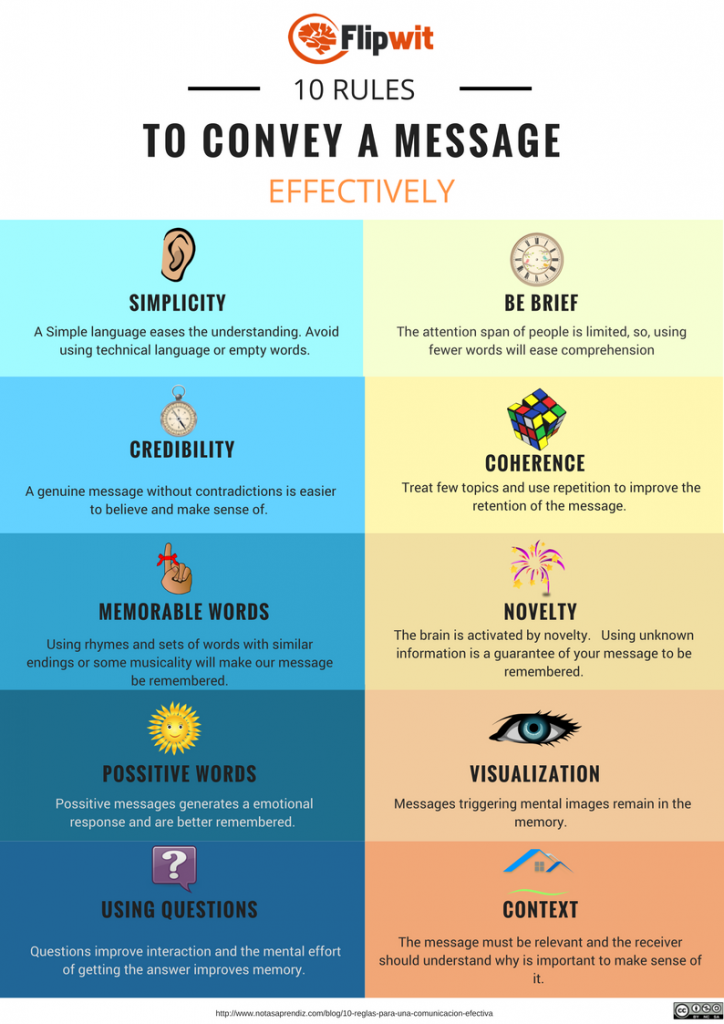Effective communication- How to convey a message effectively

Effective communications is a cross-cutting need; no matter if we are educators looking for alluring our students or entrepreneurs trying to convince an investor about the benefits of our product. This kind of communication aims to get a point across causing an effect on the receiver; however is not an abundant skill nowadays.
So, educators, entrepreneurs, salesmen and everyone with the objective of persuading or conveying a message will benefit applying the following rules developed by Frank Lantz.
If you want to apply these rules in your presentations, explore FLIPWIT and try it for FREE.
1. Simplicity: Simple messages cause a bigger impact. So, if you want to be remembered, leave behind technical language and empty words.
2. Be brief: Remember that less is often more. The attention span of our brains is limited and our audience could not be motivated. So, forget about neverending speeches and try instead to use a limited number of words that could phrase your message with precision.
3. Credibility: Confusing messages will cause doubts about the veracity of your message activating a defensive response in your audience. People just consider genuine information. So, making your message genuine and avoiding contradictions will gain the credibility of your public and ease the communication.
4. Coherence: Even if you want to try several topics, our attention is limited and the working memory will filter most of the information. The recommendation is to focus on few elements that should be recalled through repetition
5. Memorable words: The brain has an aesthetic sense which is attracted by elements such as symmetry and rhythm. In terms of speech, using rhymes and sets of words with similar endings or some musicality will make our message be remembered.
6. Novelty: Our brain is trained to detect and get motivated by innovative elements. In this case, surprising our audience with unknown information or data; will help them to make sense of our message and remember.
7.Positive messages: We naturally prefer happy endings. So, connecting the message with emotions and transmitting hope will help your audience to accept the message and remember.
8.Visualization: The brain works building networks. Therefore, if our messages can trigger mental images; it will be easier for our audience to remember and recalling such memories in the future.
9. Using questions: Questioning your audience will help them to feel included. In addition, the mental effort of processing the answer will make them get connected to the topic and help them to remember.
10.Context: Our emotional brain needs to make sense of information in order to get motivated. That is the reason why your audience should know the importance of the message and how it is related to their needs and ambitions.
Check out this course: Storytelling Tactics to Make Exciting Speeches
Comments






